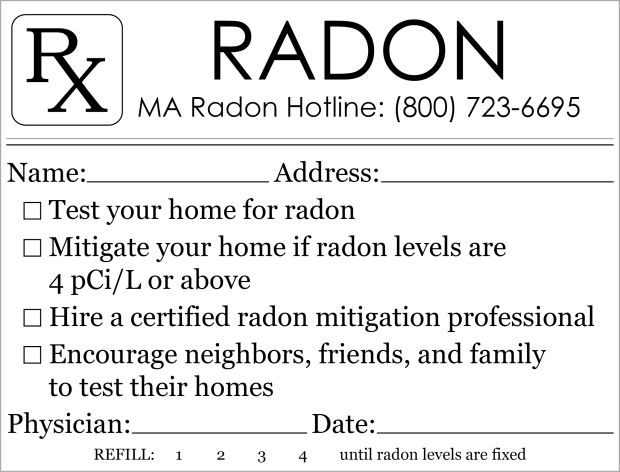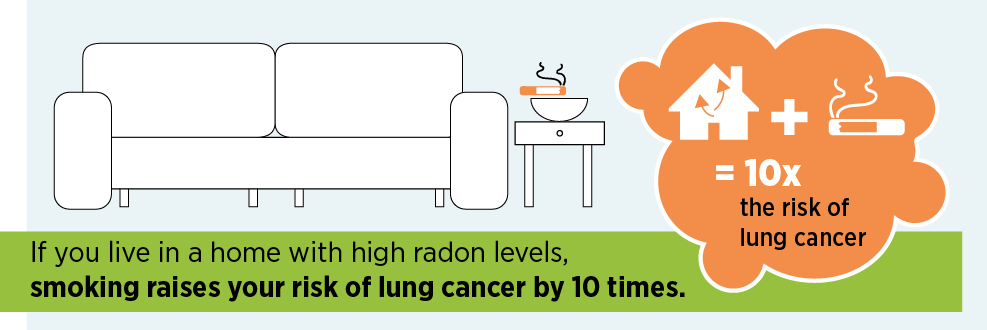What is radon?
Radon is a form of radiation that comes naturally from soil and rocks. Radon gas can travel from the ground into a building through cracks and holes in the foundation. It can also enter a home through private well water. Radon in water is usually a small source of risk compared to radon in the indoor air.
What are the dangers of radon?
Any amount of radon exposure has some risk of causing lung cancer. An estimated 21,100 U.S. deaths annually are attributed to radon exposure. Radon is the #1 cause of lung cancer among people who don’t smoke. For smokers, their risk of developing lung cancer from radon exposure is 10 times higher than for non-smokers.
Children are particularly vulnerable to ionizing radiation, especially early in life. Because children spend much of their time indoors, they may have increased exposure to radon and greater subsequent health risks. Children exposed to tobacco smoke along with radon may have an even higher risk for lung cancer.
Who should test their home for radon?
Everyone should test their home for radon. Any home can have high levels of radon—new and old homes, well- sealed and drafty homes, and homes with or without basements. In Massachusetts, an estimated 1 out of 4 homes are predicted to have high radon levels (above the U.S. Environmental Protection Agency’s action level of 4 pCi/L [picocuries per liter of air]). Testing the home is the only way to know if radon is a problem.
Resources on radon testing and mitigation are available at www.mass.gov/radon. If you have questions, contact the Massachusetts Radon Hotline at (800) 723-6695.
Additional Resources
-
Open PDF file, 199.2 KB, Radon Information for Healthcare Providers (English, PDF 199.2 KB)
Contact
Online
Phone
or
The operating hours are Mondays through Fridays from 8:45 a.m.-5 p.m. Please leave a message including your phone number and you will receive a call back.

